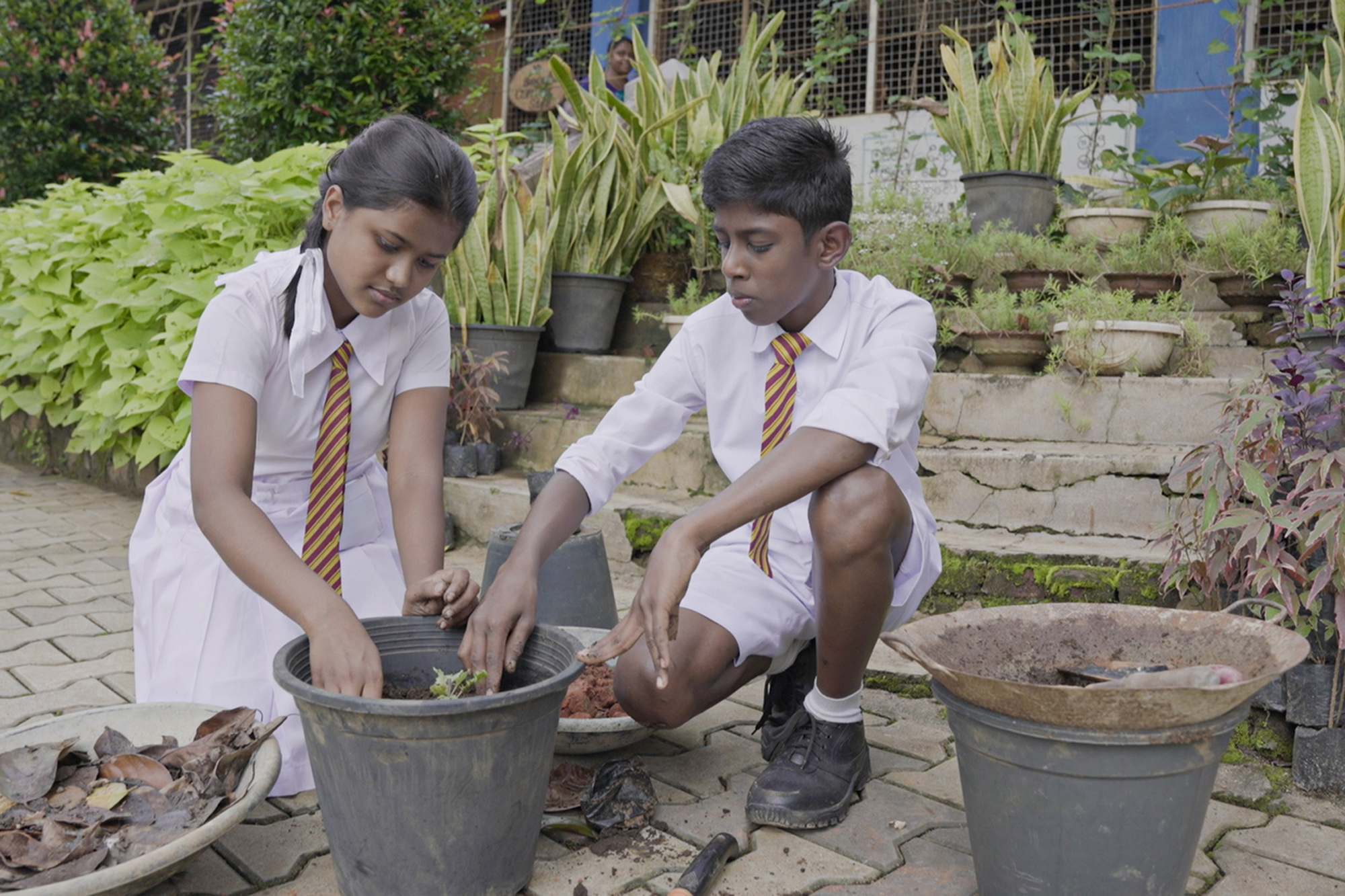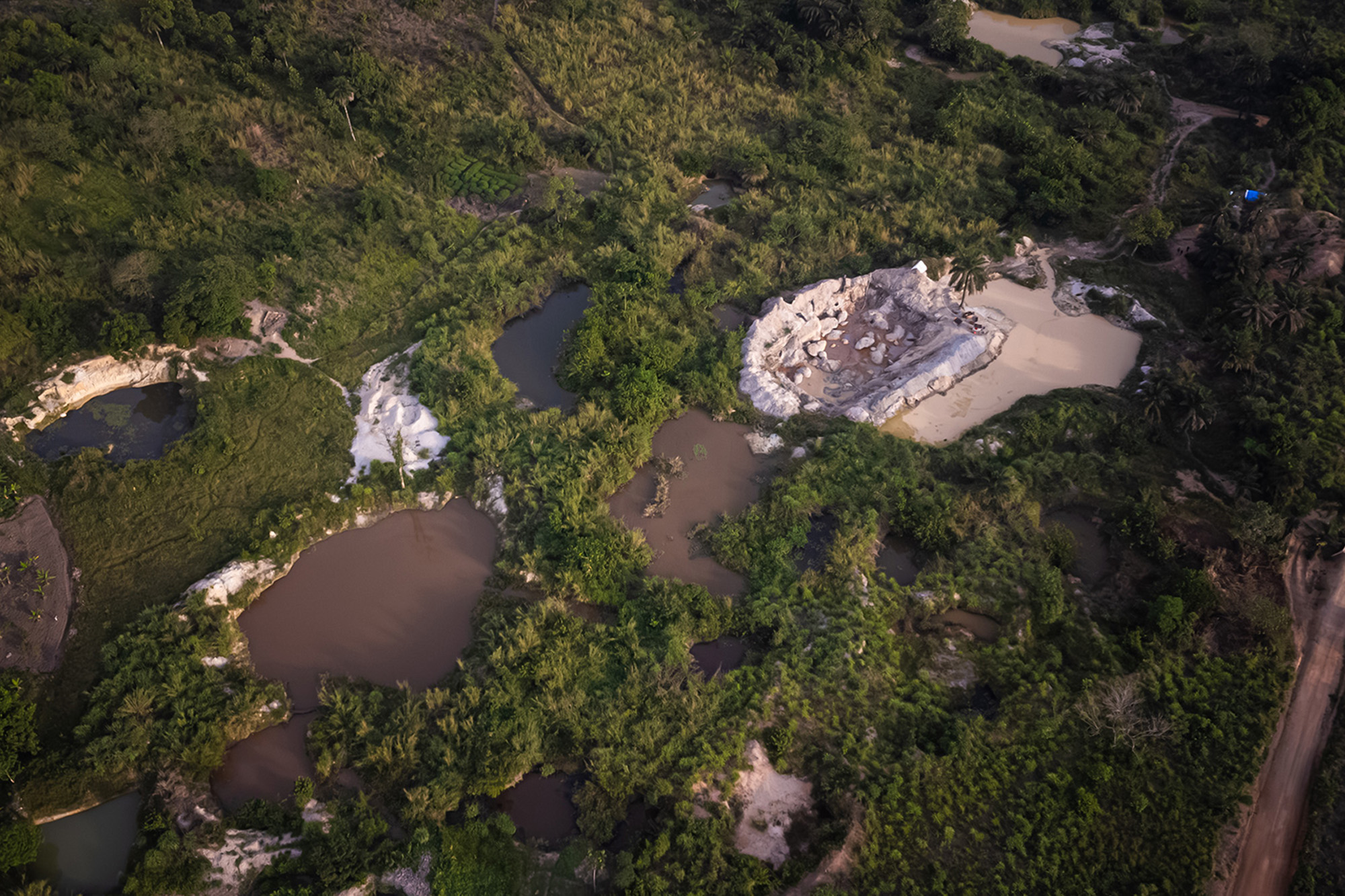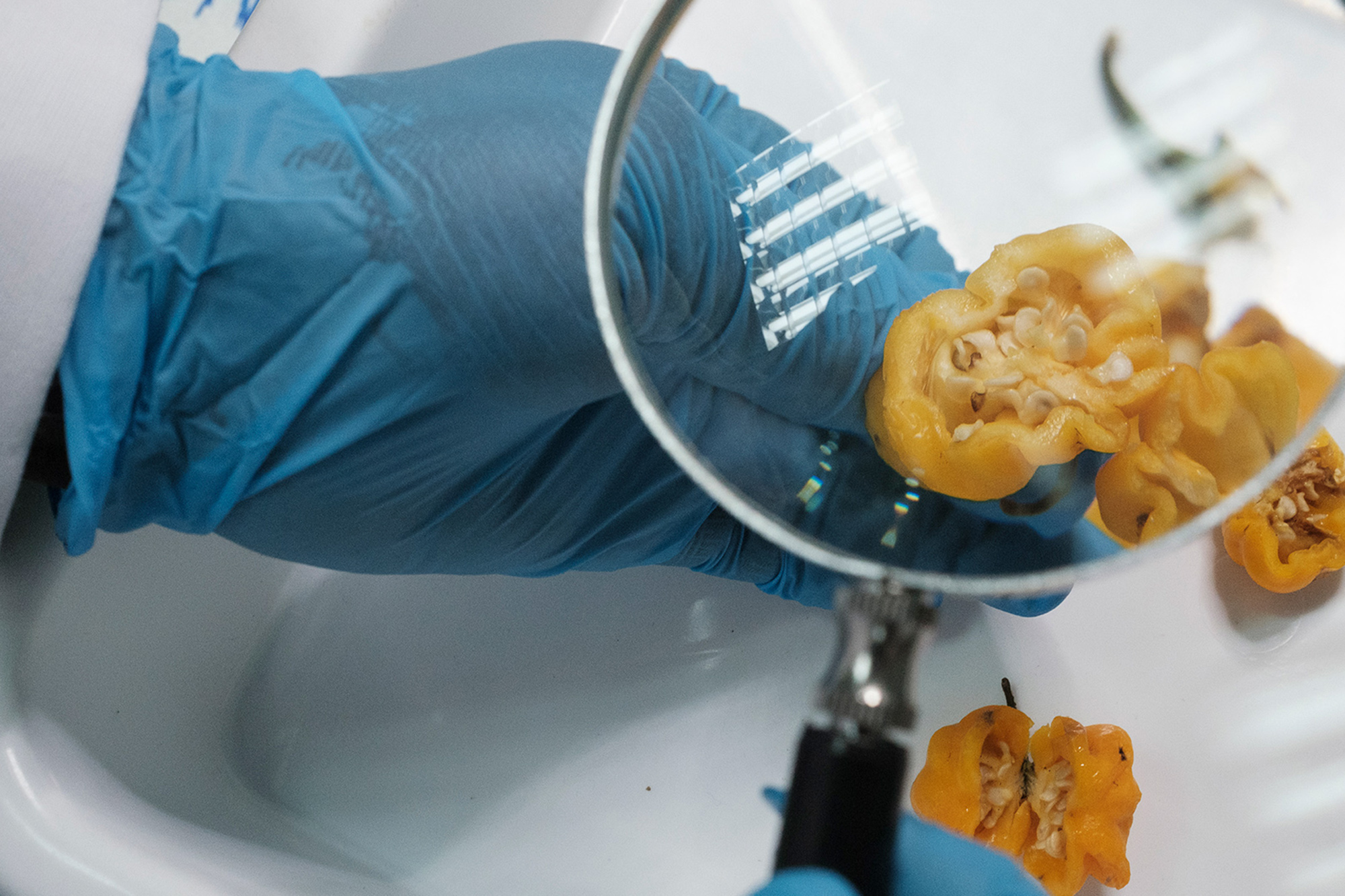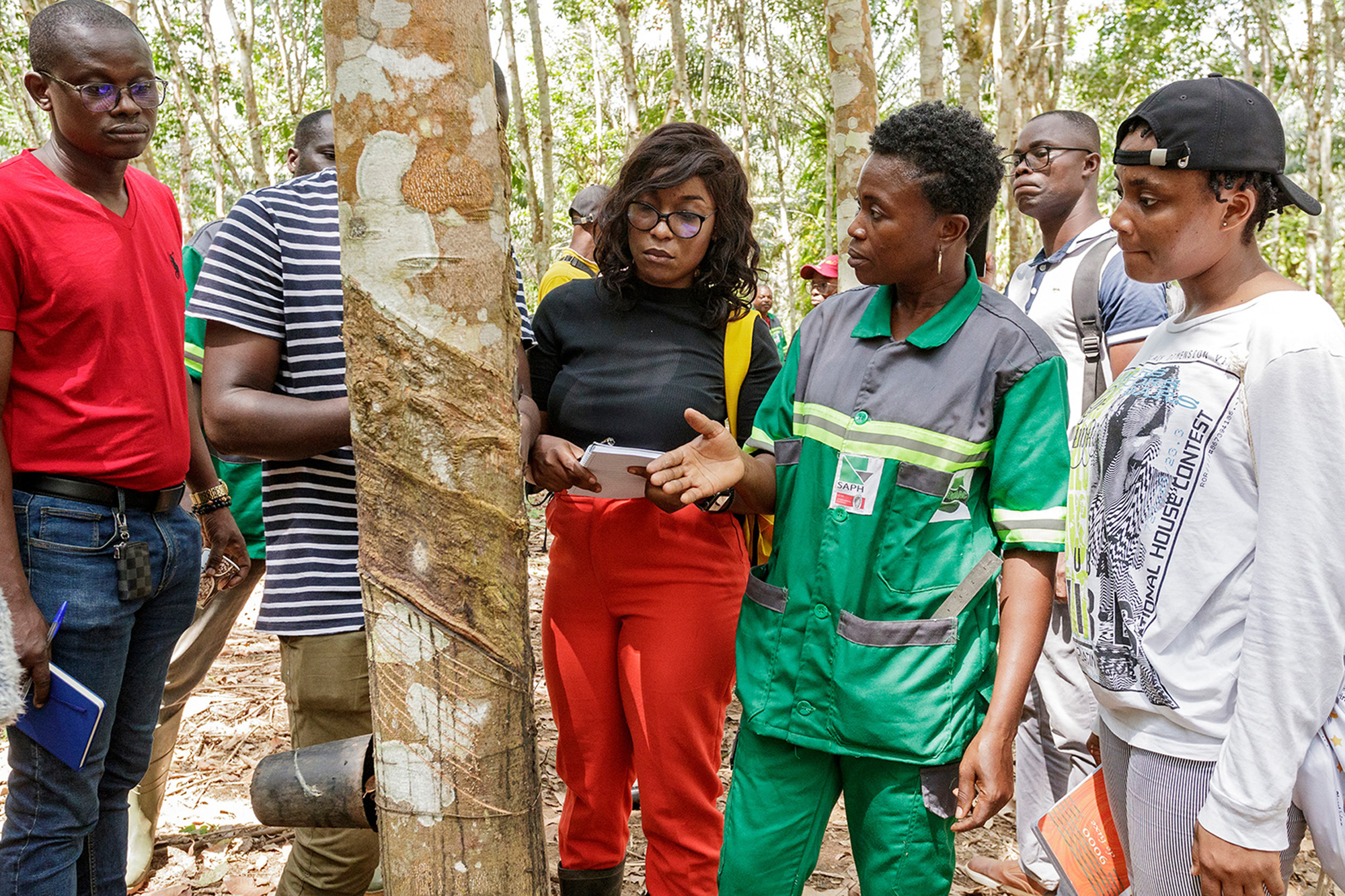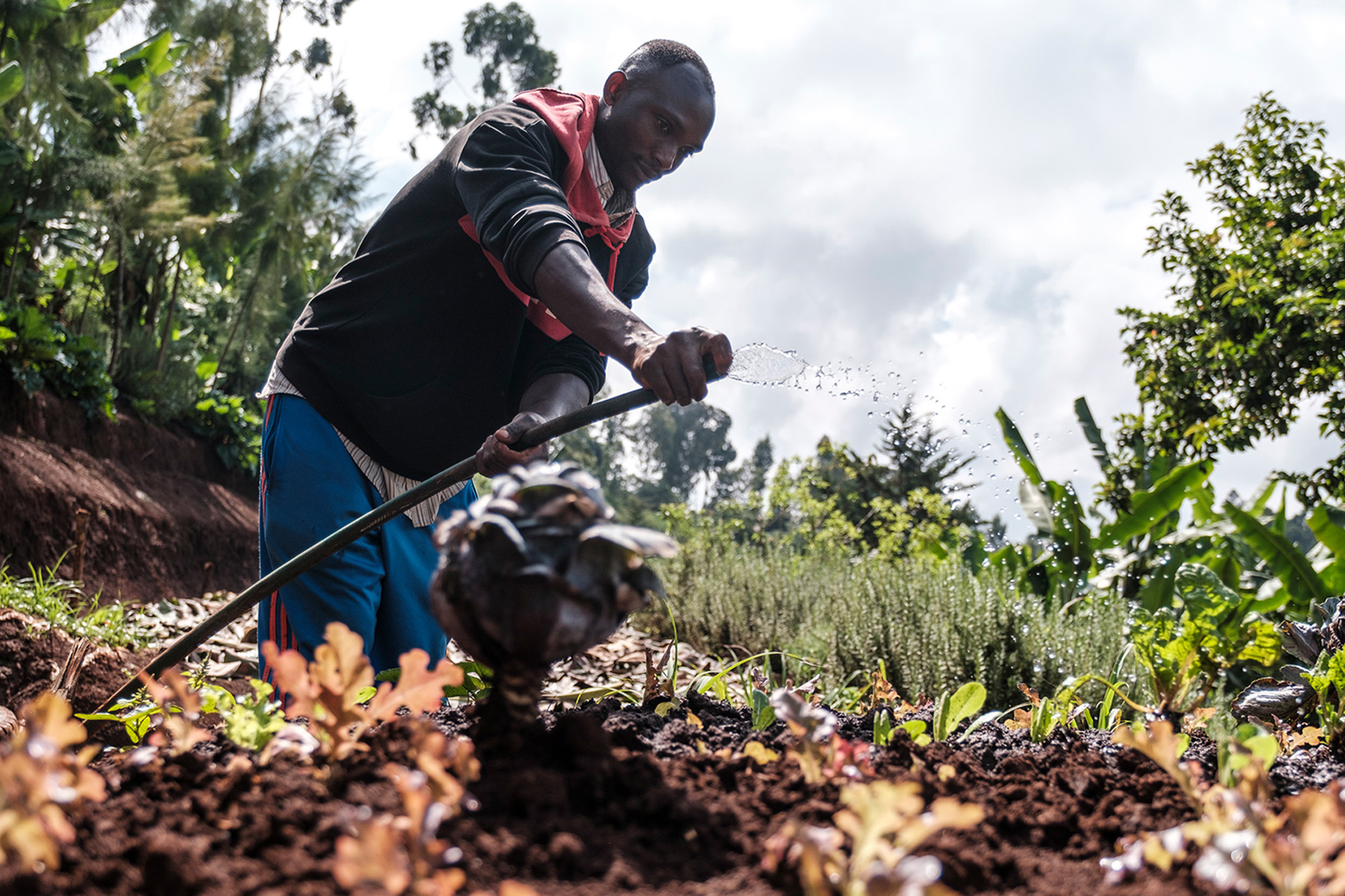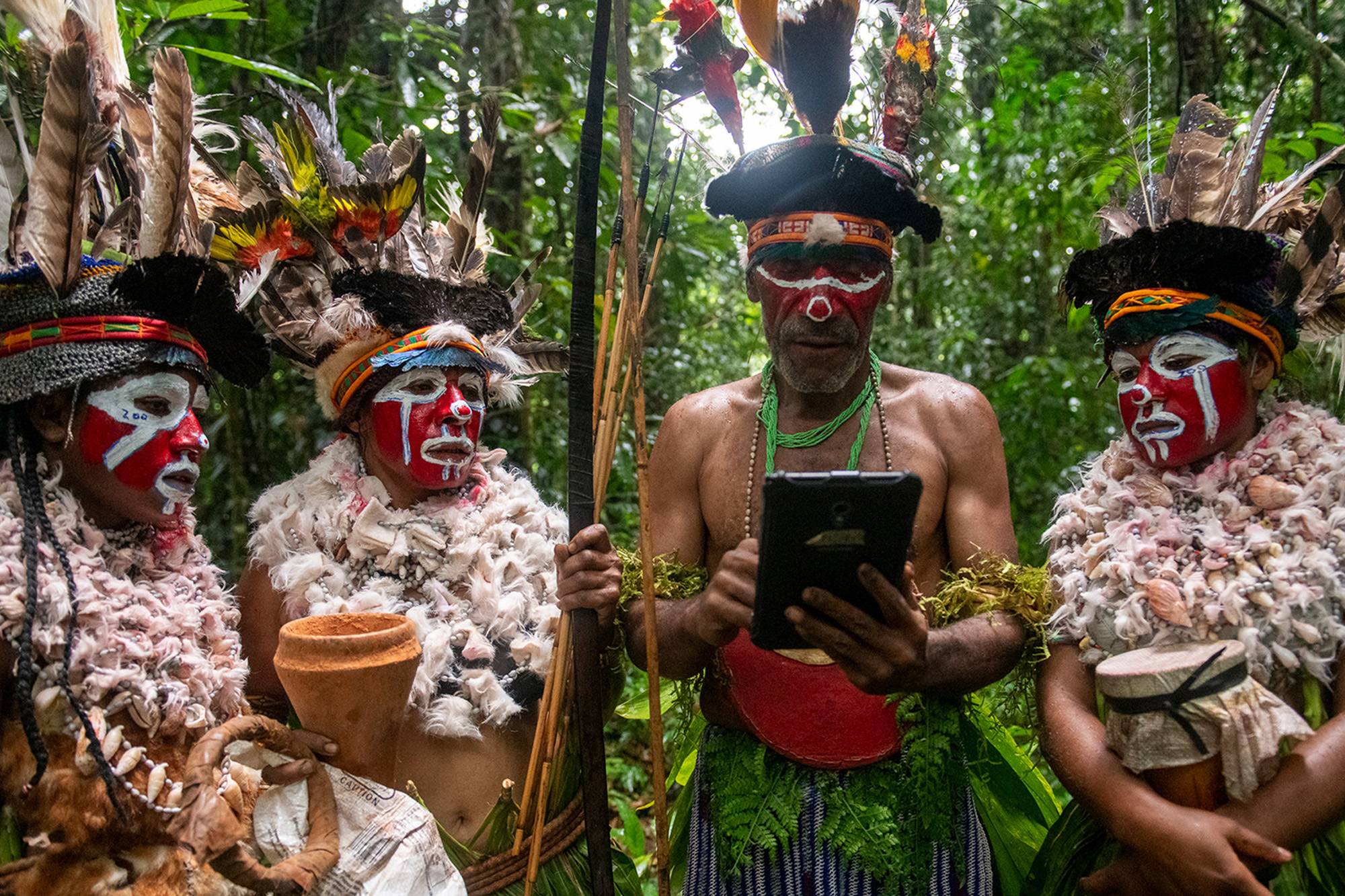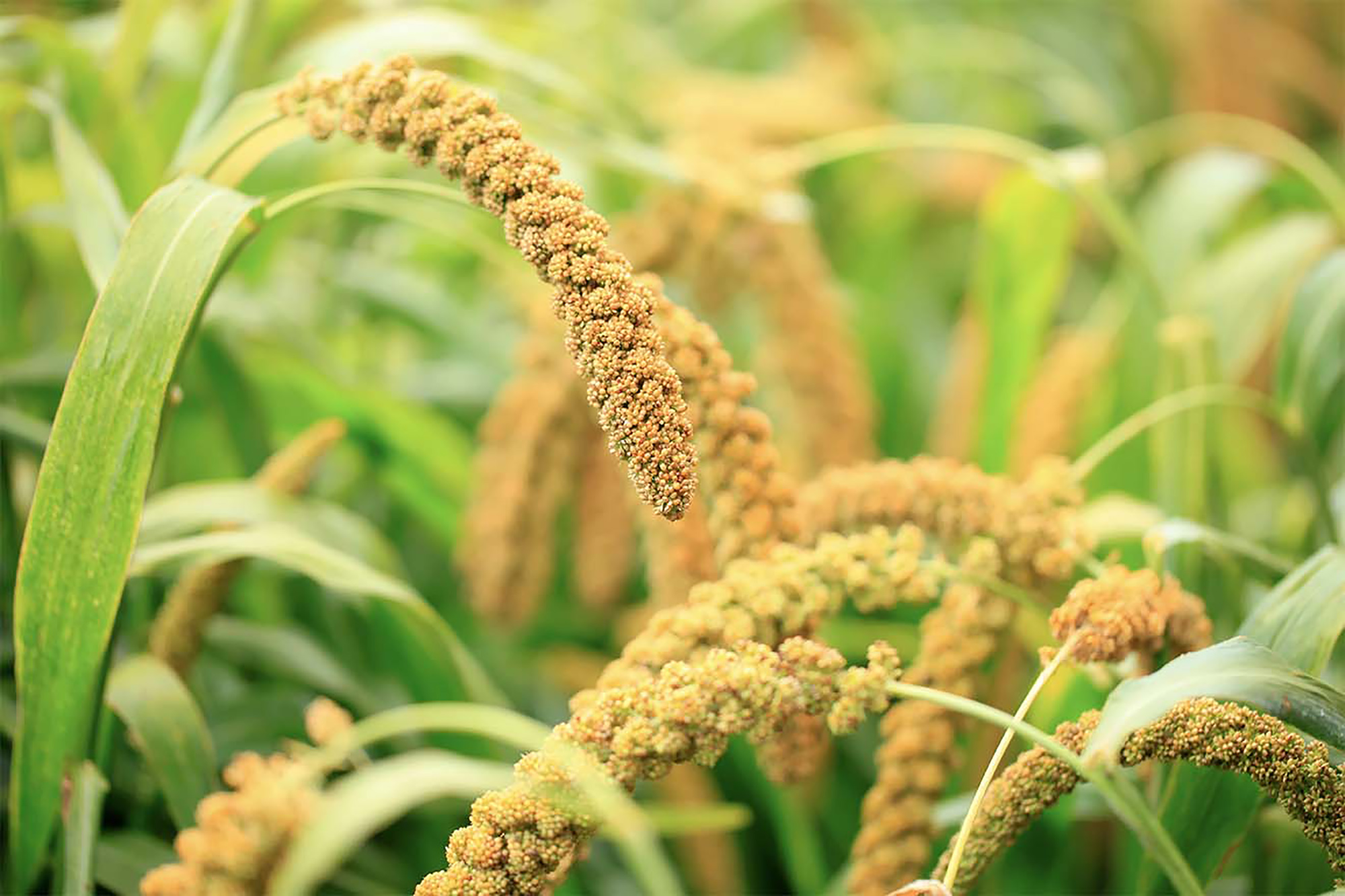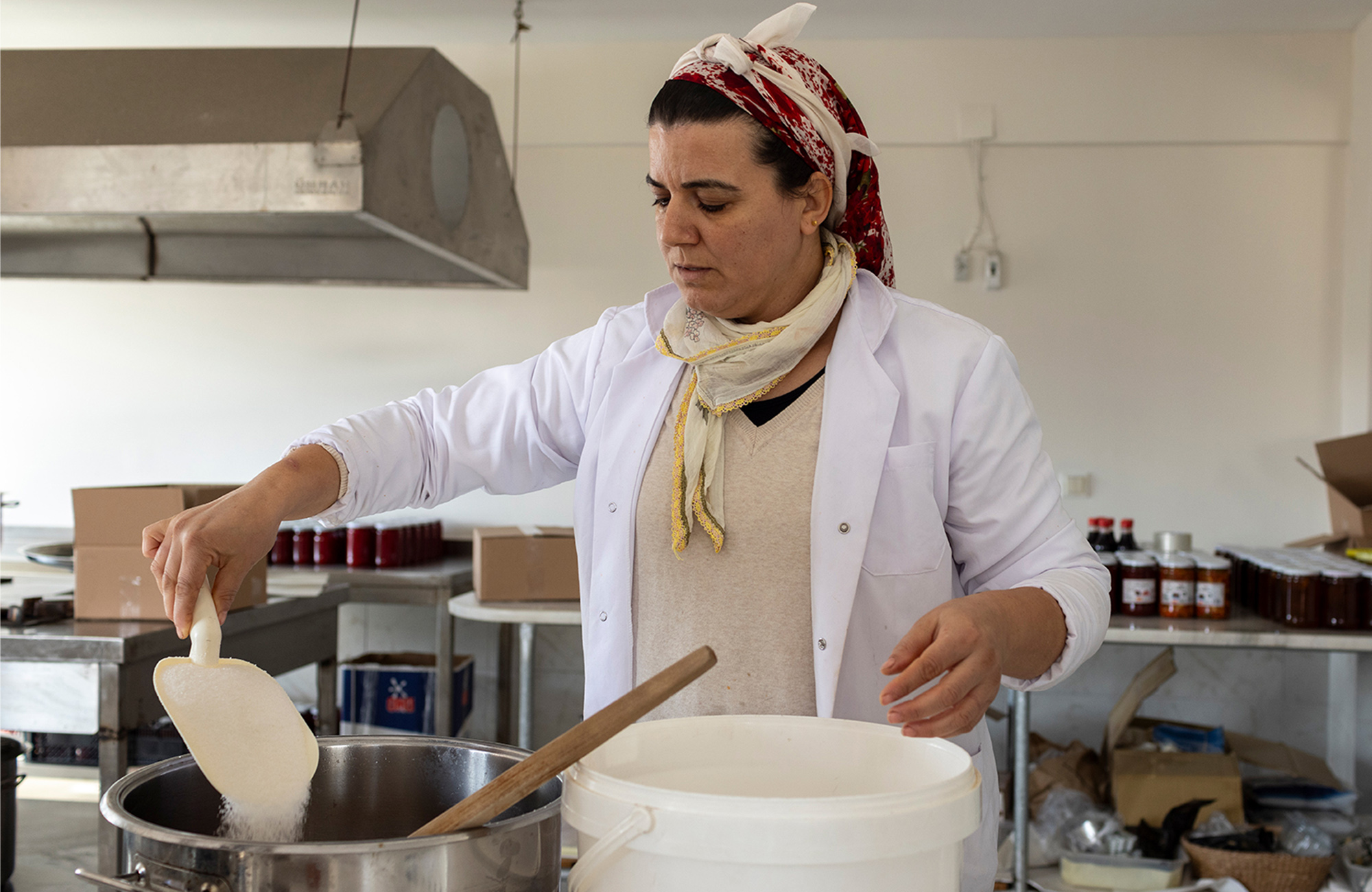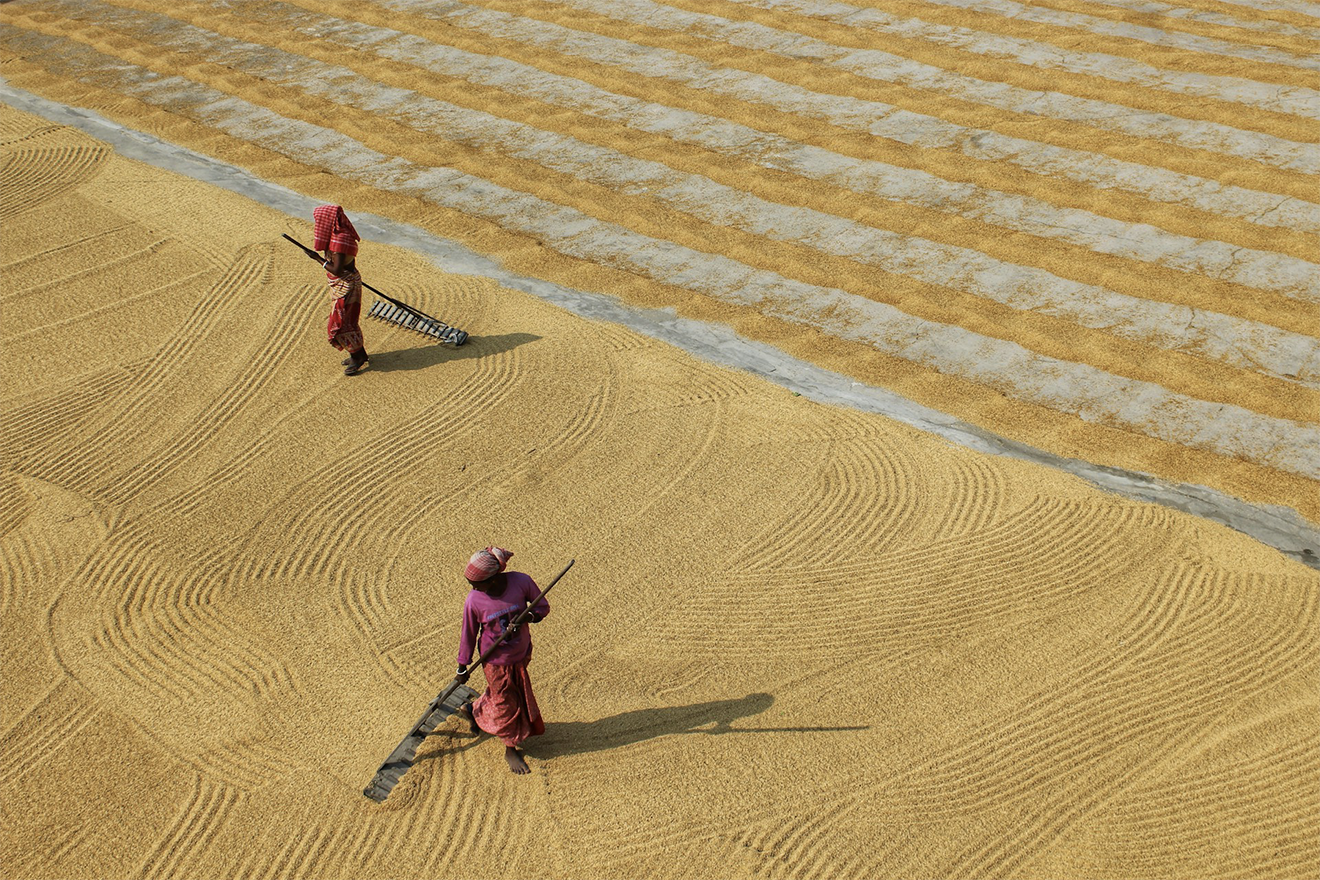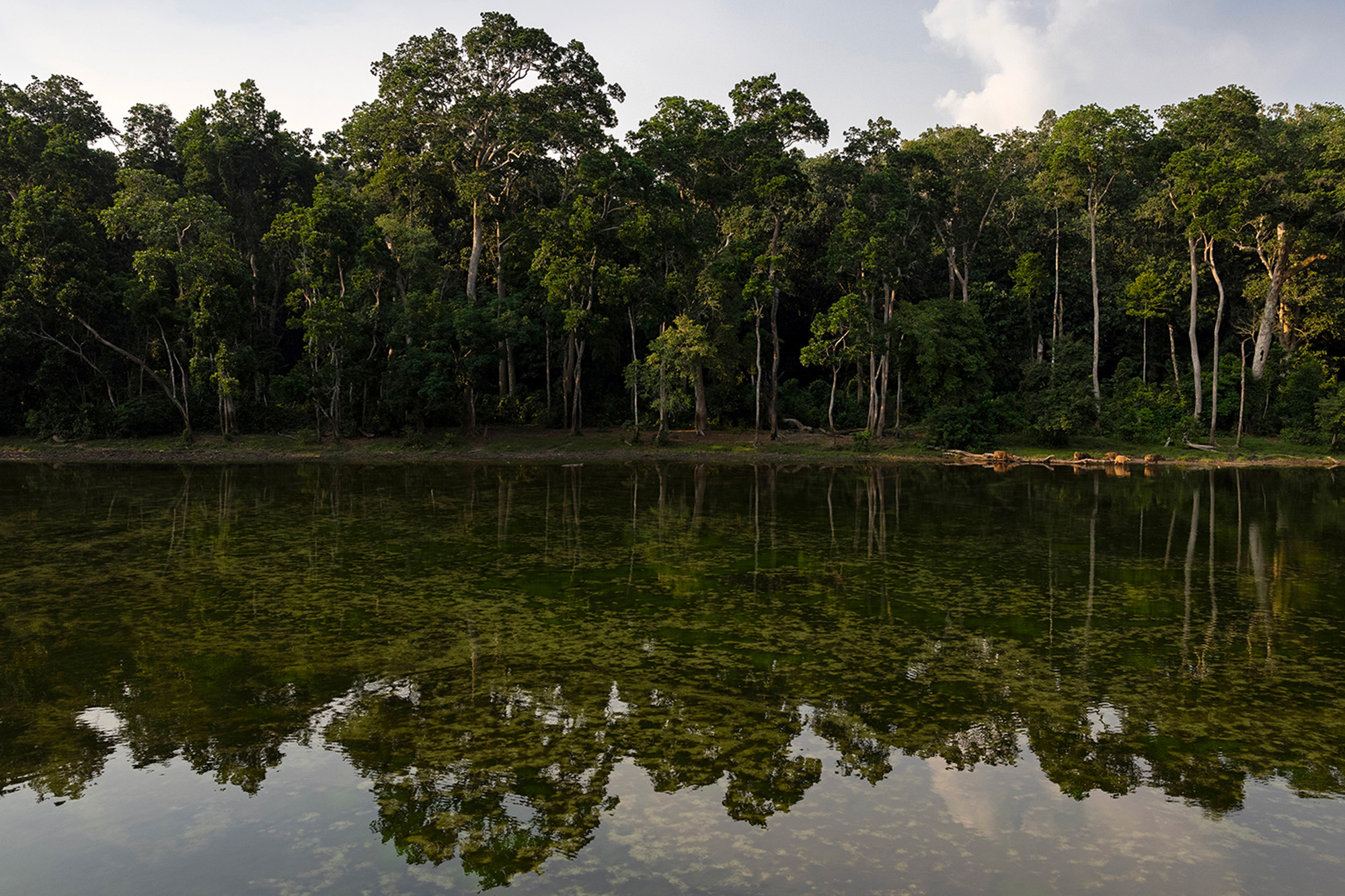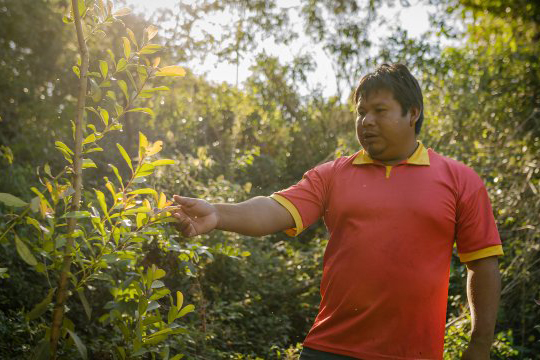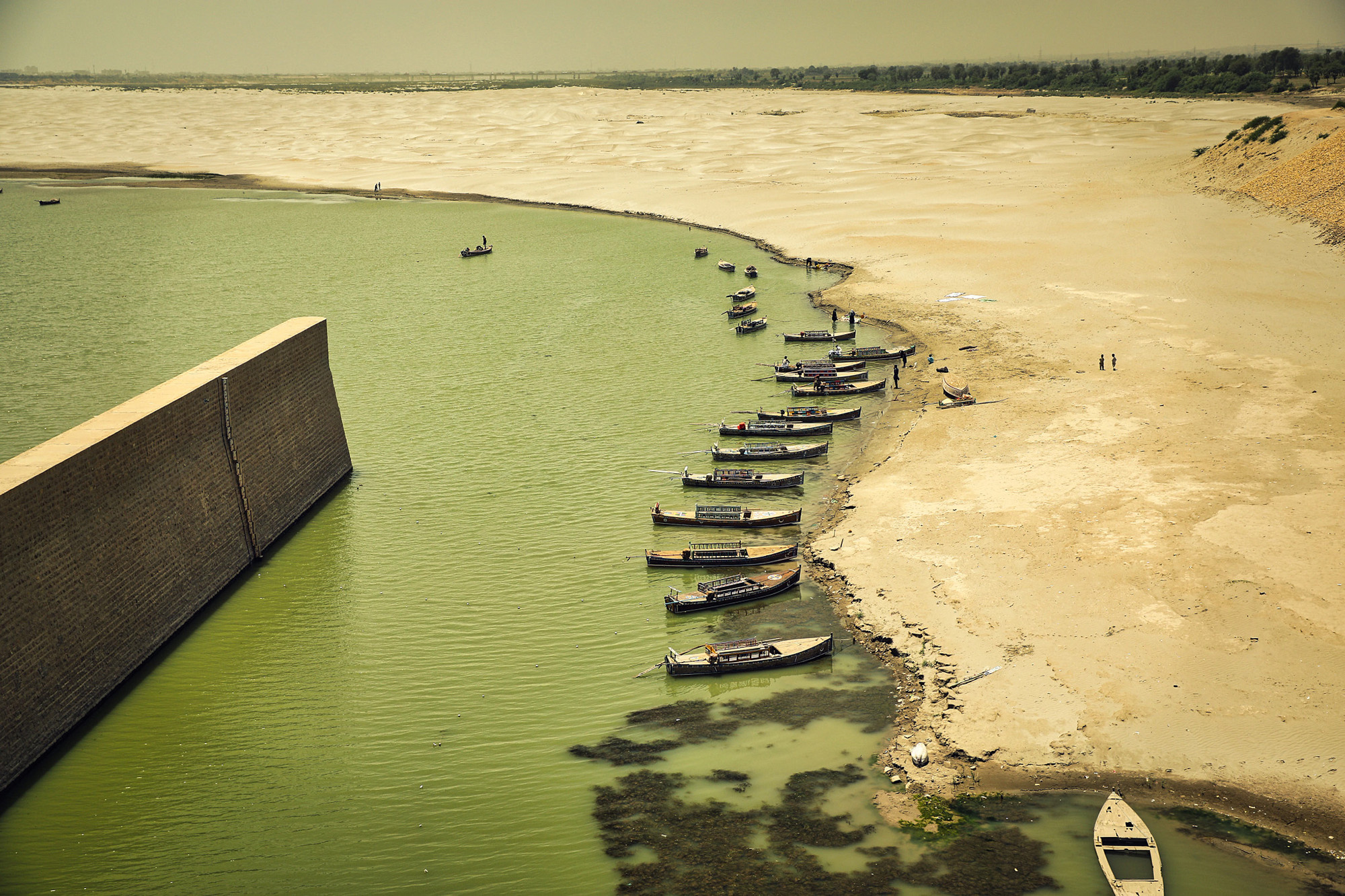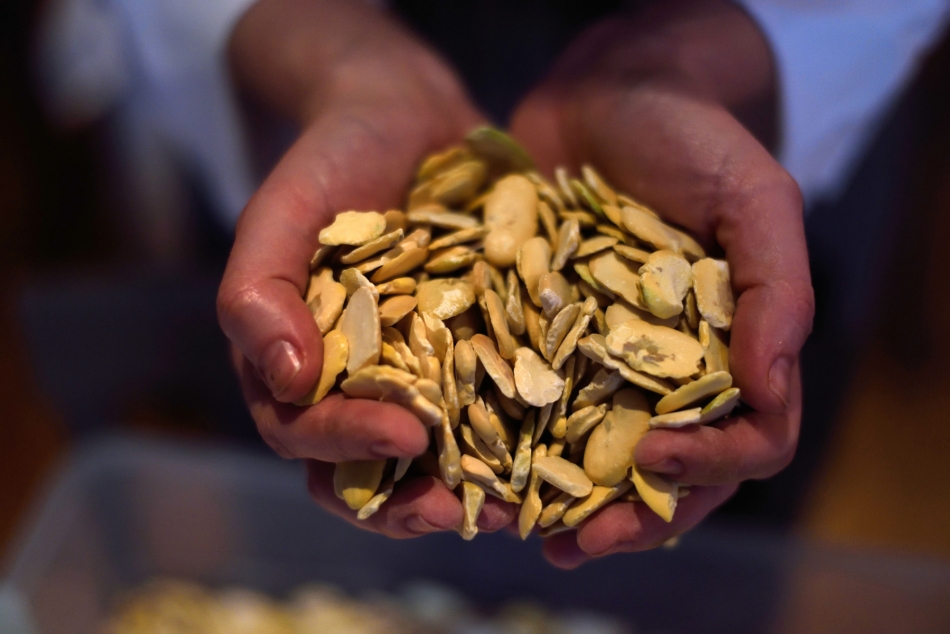Students at Senkadagala School in Sri Lanka cultivate fruits and vegetables in their school garden to prepare meals. The garden also yields plants that are sold to promote an entrepreneurial mindset. The programme is part of the Entrepreneurial School Garden initiative implemented by the Food and Agriculture Organization of the United Nations (FAO) to promote healthy eating habits and nutrition. The students learn about their ecosystem and use modern agricultural methods to control weed growth and insect infestation and maximize productivity.
FAO
Facing mounting challenges from COVID-19, climate change, and global conflicts, farmers are crucial to food security, and organizations like Food and Agriculture Organization are pivotal in supporting their resilience amid crises.
The district of Kono in eastern Sierra Leone has been scarred by diamond mining, leading to a loss of topsoil, erosion, and conflict. However, a project by the Food and Agriculture Organization of the United Nations (FAO) is helping to reclaim the land for agriculture and generate employment opportunities for young people in the region. Through the initiative, young people are learning farming skills and using green techniques to rehabilitate the mined-out areas for organic horticulture and beekeeping.
The FAO Livestock Environmental Assessment and Performance (LEAP) Partnership is a global multi-stakeholder initiative striving for more sustainable livestock practices. The partnership offers tools to assess and minimize the environmental impacts of livestock systems.
The Food and Agriculture Organization of the United Nations (FAO) promotes a One Health approach that values the interdependence of health between people, animals, plants and the environment. It calls on different sectors to work together to promote well-being and address threats to health and ecosystems. This approach also drives agrifood system transformation by addressing threats such as pests and diseases in animals, plants, and forests that reduce productivity, endanger biodiversity and threaten livelihoods. Some of the issues that FAO addresses by utilizing a One Health approach include antimicrobial resistance, overuse of fertilizers and synthetic pesticides, soil degradation, zoonotic diseases, and pandemics.
The work of statisticians is crucial to address food insecurity and improve food productivity. Young African women are working to bridge the data gap in their countries and improve the agricultural landscape. The Food and Agriculture Organization of the United Nations (FAO) Global Strategy to Improve Agricultural and Rural Statistics programme helps young statisticians to learn how statistical theory applies to real-life agricultural production and yield. FAO offers scholarships to applicants in African countries to pursue a one-year master's programme in Agricultural Statistics. The programme covers data collection and analysis, sustainable practices, and leveraging technology.
Water is crucial to life and economies, but it can also cause or be affected by conflict. The risk of conflict is increasing due to water scarcity and climate change, making effective water resource management essential for peace. Remote sensing, using open-access satellite data, can help monitor water resources, even in conflict-affected areas. The Water Productivity through Open-access of Remotely-sensed derived data, a tool created by the Food and Agriculture Organization of the United Nations (FAO), has been used in conflict zones like Syria, Sudan, Mali, and Sri Lanka to monitor water resources, reduce conflict, and restore access to water.
The AIM4Forests programme, launched by Food and Agriculture Organization of the United Nations (FAO) and the UK government, aims to provide countries with technological means to combat deforestation and actively involve Indigenous Peoples in forest monitoring. The programme has already begun implementation in 11 countries, including Papua New Guinea, where it combines modern technology with traditional knowledge to halt deforestation and restore degraded land. Custodians like Besta Pulum can now monitor their forest area using high-resolution satellite imagery and Open Foris Ground, a tool that allows them to demarcate their forest and monitor it using Google Earth.
The International Year of Millets, which began in 2023, is nearing its end. It has been an invaluable opportunity to spotlight the nutritional and health benefits of millets, as well as their adaptability to challenging growing conditions, including climate change and minimal inputs. Consequently, they offer an ideal solution for nations seeking to diminish dependence on imported grains. If you're intrigued by the diversity and culinary potential of millets, explore this recipe book with enticing recipes from various regions, cuisines and cooking skills. Join the closing event organized by FAO.
Çiğdem Kudret was raised in a household where women were discouraged from working outside the home and had never experienced financial independence. After six months of training, in 2019 she joined the production team of a women's cooperative established in the Hatay province of southern Türkiye. However, after a devastating earthquake in 2023 the cooperative suffered significant losses, leaving only 10 percent of their products salvageable. With the Food and Agriculture Organization of the United Nations (FAO) support, the founder of the cooperative, Atiye Sönmez Erdoğdu, relaunched the cooperative’s e-commerce efforts and rallied other members to resume production despite the challenges.
“The unjust climate” report by FAO measures the impact of climate change on the poor, women, and youth. It demonstrates how climate stressors widen the income gap among rural people along the lines of class, gender and age. By combining socioeconomic data from rural people across 24 countries with over 70 years of climate data, this report reveals how climate change has more adversely impacted female-headed households' livelihoods than male-headed households’. We urgently need to increase awareness of these disparate climate impacts and to direct additional resources towards women's empowerment.
In Kabo village, men play a game with beans. The beans represent wild animals, the bag is the forest, and the players are hunters. Once the bag is empty, they all lose. This game is designed to show the consequences of unsustainable hunting on future generations' food and incomes. The Bantu and Baaka Indigenous Peoples groups in the Congo rely on wild meat as their main source of protein and income. However, overhunting, deforestation, pollution, diseases, and climate change have reduced the population of wild animals in the Congo Basin. The Sustainable Wildlife Management Programme, coordinated by the Food and Agriculture Organization of the United Nations (FAO) and three other organizations, works to restore the balance between food security and wildlife conservation.
For generations, Ariel Benitez's ancestors, the Ava Guaraní people, one of the Indigenous Peoples living in eastern Paraguay, have been harvesting the green leaves of the yerba mate tree to make the bitter, caffeinated brew beloved in South America and beyond. With wild yerba mate trees increasingly scarce due to climate change, this community, with FAO’s assistance, is planting new trees to support the environment and their livelihoods. They've planted more than 1,500 of them in combination with several other species of native trees, which are important for both the local ecosystem and as traditional sources of food and medicines.
The UN Environment Programme (UNEP) and the Food and Agriculture Organization (FAO) of the UN have named seven initiatives from Africa, Latin America, the Mediterranean, and Southeast Asia as UN World Restoration Flagships. These projects aim to restore ecosystems at the tipping point of outright degradation resulting from wildfires, drought, deforestation, and pollution. The World Restoration Flagship awards are part of the UN Decade on Ecosystem Restoration which aims to restore one billion hectares – an area larger than China. The winning initiatives are expected to restore nearly 40 million hectares and create around 500,000 jobs. The World Restoration Flagships are chosen as the best examples of ongoing, large-scale and long-term ecosystem restoration.
Pulses, have the potential to revolutionize agrifood systems by enhancing food security, nutrition, and soil health as emphasized by FAO on World Pulses Day, February 10th.

